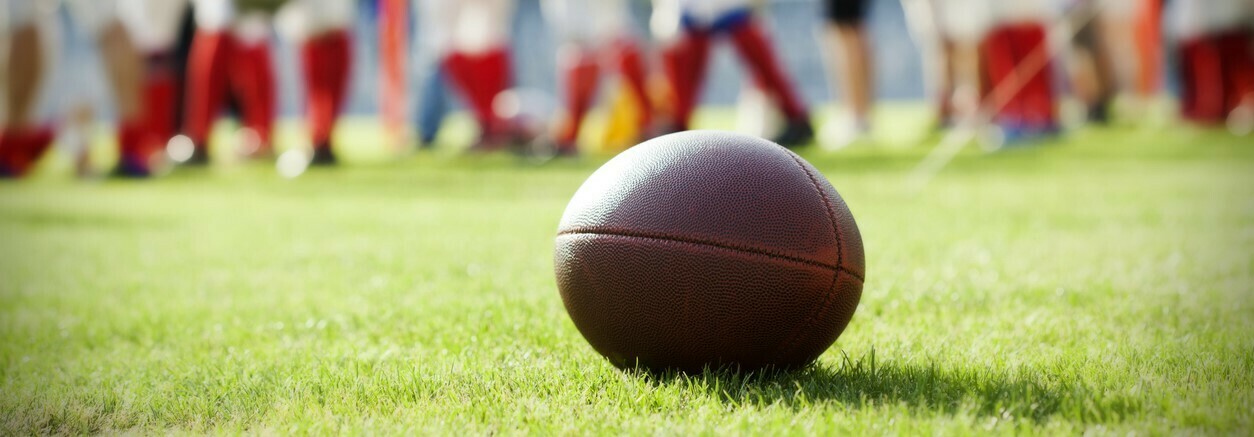Intellectual Property Insights from Fishman Stewart PLLC
Newsletter – Volume 25, Issue 8
Share on Social


NIL, Transfer Portals, and Title IX – The College Sports Revolution
Hold onto your foam fingers, sports fans – college sports just got a whole lot more interesting! The latest updates to Name, Image, and Likeness (NIL) rules are making student-athletes bigger than ever, and it’s not just about the game anymore. We’re talking endorsements, sponsorships, and making big bucks – and the landscape is shifting fast.
What’s the Deal with NIL?
In case you missed it, the NCAA and the largest conferences in college sports, have agreed to a $2.8 billion settlement, opening the door for schools to pay athletes directly for their NIL starting as early as July 1. Yup, you read that right –if approved by the judge, it would open the door for schools to pay athletes directly, up to $20.5 million a year, which will increase annually (AP News). One of the questions will be, where is the money coming from? Regardless of the ruling, college athletes are eligible for their own “starring in commercials” moments – talk about a game-changer.
Transfer Portal: The New Free Agency
But wait, there’s more! Ever heard of the transfer portal? It’s the college sports version of free agency. Athletes can now bounce from one team to another and play immediately (no more sitting out seasons). Schools are scrambling to recruit these athletes like it’s draft day – the transfer portal is the new “deadline day” in college sports.
Title IX: The Equity Play
And let’s not forget about Title IX – the law that’s always been about making sure there’s fairness in sports, especially for female athletes. But now, things are getting a bit tricky with NIL. The guidance used to say that NIL pay had to be proportional to Title IX rules (which means equal opportunities for male and female athletes). But in 2025, the Department of Education stepped in and said, “Hold up – Title IX doesn’t apply to NIL pay”.
Now, schools and athletes are figuring out how to navigate this new world where the old rules don’t exactly apply. Will this affect how NIL deals are distributed? Only time will tell, but one thing’s for sure – college sports are in the midst of a serious shake-up.
The Bottom Line
So what does all this mean? College sports aren’t just about playing anymore – it’s about building brands, making deals, and securing those sponsorships. For athletes, it’s a gold rush of opportunity, and for schools, well, they’re trying to catch up. The NIL revolution is just getting started, and it’s going to be a wild ride!
Stay tuned for more updates as we keep following how these changes are shaping the future of college sports – and how your favorite athletes are cashing in on their creativity.
Deb Schneider is Of Counsel to Fishman Stewart and leads the firm’s sports law practice. She is a seasoned professional and subject matter expert who simultaneously teaches sports law at multiple law schools, drawing on her extensive experience as both a chief legal officer and an outside legal consultant in the field.
Related Content from Fishman Stewart
By 1930, efforts began in New York to replace Mother's Day with Parent's Day because men were more than just breadwinners. Those efforts didn't catch on, probably because in that era, women often spent more time in the home.
In February, Nike and Skims announced that they will be working together on a new brand, NikeSkims. The co-brand will create a new line of training apparel, footwear, and accessories specifically designed to meet the unique needs of women athletes.
Generally, federal courts have exclusive jurisdiction over copyright cases, and often, this presents an insurmountable paywall for individual artists and small businesses to vindicate their rights, especially where the value of the individual copyrighted works are relatively low.
Dedicated to raising public awareness about the importance of encouraging innovation and creativity throughout the world, the World Intellectual Property Organization (WIPO) annually observes World Intellectual Property Day on April 26 to showcase the role that patents, trademarks, industrial designs, copyrights and trade secrets play in our everyday lives.
Hold onto your foam fingers, sports fans – college sports just got a whole lot more interesting! The latest updates to Name, Image, and Likeness (NIL) rules are making student-athletes bigger than ever, and it’s not just about the game anymore.
Did a federal court in Louisiana recently decide that US copyrights are global rights? It seems so.
One of his most famous songs, “Lose Yourself” was recently at the center of a lawsuit. In 2019, Eminem’s publishing company Eight Mile Style sued Spotify claiming that Spotify streamed a number of its musical compositions without proper licenses.
One of the most common challenges is whether AI should be free to train on data that is protected by copyright and owned by third parties without first obtaining permission.
The U.S. Copyright Office (USCO) recently published its latest report on AI and “copyrightability.” In short, the USCO considers only some AI-generated works to be sufficiently creative as to deserve copyright protection, and thus, registration.
Back in the 1940’s assignments by independent contractors could be permanent and irrevocable. Things changed in 1976, when Congress overhauled the Copyright Act.
IDENTIFYING, SECURING AND ADVANCING CREATIVITY®













